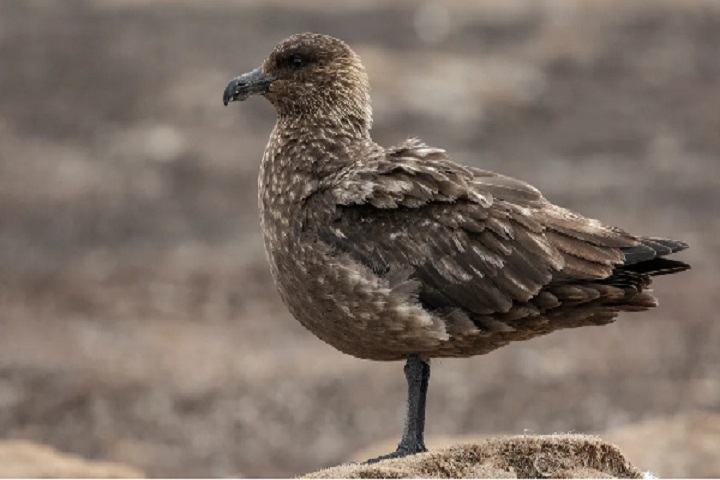
Bird flu detected in Antarctic for the first time, British Antarctica Survey says
LONDON, Oct 26 (NNN-AGENCIES) — The first cases of bird flu have been detected in seabirds in the Antarctic, according to the British Antarctic Survey, raising fears the disease will spread rapidly through dense colonies of birds and mammals.
“Highly Pathogenic Avian Influenza (HPAI) has been confirmed in brown skua populations on Bird Island, South Georgia – the first known cases in the Antarctic region,” the British Antarctic Survey said in a statement.
South Georgia is part of the British overseas territory east of South America’s tip and just above Antarctica’s main landmass. The British Antarctic Survey believes the birds carried the disease on their return from migration to South America.
In August this year, OFFLU – an open network of global avian influenza experts – warned of a “substantial risk” of a southward spread of the HPAI H5 virus from South America, where it was first detected in October 2022.
In a report published Aug 23, OFFLU warned that the disease could reach Antarctica and its offshore islands “due to the spring migration of wild birds from South America to breeding sites in the Antarctic.”
It pointed to “immense” negative impact on the Antarctic wild birds and mammal population due to “their likely susceptibility to mortality from this virus, and their occurrence in dense colonies of up to thousands of pinnipeds and hundreds of thousands of birds, allowing efficient virus transmission.”
Bird flu is caused by infections that occur naturally among wild aquatic birds, according to the Centers for Disease Control and Prevention. Infected birds can transmit the virus to other animals through their saliva and other bodily discharges.
Antarctica and its offshore islands are home to “more than 100 million breeding birds, six species of pinnipeds and 17 species of cetaceans,” according to OFFLU, which warns of the possibility of “efficient virus transmission” in the region.
One of the key objectives of OFFLU, which was founded jointly in 2005 by the Food and Agriculture Organization of the United Nations and the World Organisation for Animal Health, is to gather data on the viruses and analyze disease patterns.
The British Antarctic Survey, which is responsible for the UK’s national scientific activities in Antarctica, operates two research stations on South Georgia, including one at Bird Island where the confirmed cases were identified.
These unprecedented cases come as several countries have experienced record outbreaks of bird flu this year. In Japan, just under 10 million birds were killed to limit the spread of the disease, putting strain on the supply of poultry and sending the price of eggs soaring.
— NNN-AGENCIES
